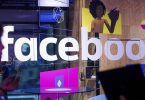Germany wants to avoid at all costs as the cases of Syrian refugee , slandered to exhaustion in social networks, whose only crime was to make a selfie with Chancellor Angela Merkel . Or the case of the deputy of the Greens party, who underwent a smear campaign because of statements she never uttered. To curb an increasingly worrisome phenomenon – especially in the election year – the country’s government is preparing to punish social networks and hate propagators where it hurts the most: in the pocket.
The Ministry of Justice on Tuesday presented a bill that includes fines of up to 50 million euros (168.4 million reais) to Facebook , Twitter and other companies that do not manage to eliminate or block quickly messages loaded with Hate or clearly false news. Those responsible for propagating or not preventing racist, xenophobic or instigator messages of contempt may also be fined up to five million euros. The proposal is still under review by the Government before being submitted to Parliament.

Germany has long debated how to tackle an increasingly alarming phenomenon. The whole country became involved in the discussion of the case of Anas Modamani, the young Syrian who took Facebook to court because of his delay in deleting messages that, taking advantage of the sudden popularity of a photo with Merkel, accused him without any Have participated in jihadist attacks. But the Würzburg (south) hearing closed the suit, arguing that it was not Facebook’s responsibility to track potentially offensive messages and eliminate them. It is a premise against which the Government now turns.
This initiative, if prospered, will be the toughest measure ever taken against telecommunications giants in the name of protecting privacy and the right to honor. “Very few criminal contents are eliminated. And not fast enough, “Justice Minister Heiko Maas said at the presentation of the proposal. The Government intends to force companies to erase “clearly criminal” content within 24 hours. This would be the case, for example, of a message denying the Holocaust or inciting hatred between races. The deadline would be extended to seven days in other cases not so obvious.
The Government’s initiative comes at a particularly heated moment. The proximity of the planned elections in September raised fears that the mixture of false news and the current mood of hatred and tension would favor the anti-immigration populists of the Alternate Party for Germany (AfD), following a pattern already seen in the United States . It is suspected that information presented as true – as a supposed supporter of Pope Francis to then-candidate Donald Trump , or crimes never committed, but nevertheless attributed to the surroundings of Democrat Hillary Clinton – contributed to the Republican’s victory.
In the face of growing unrest in Germany, Facebook announced in January that it planned to launch a news filter in this country that will serve to point out suspicious information and prove its veracity. Minister Maas, who hopes to put the norm into force in this legislature, has made it clear that he is not satisfied with the steps taken so far by the company founded by Mark Zuckerberg.
The Justice Minister quoted some data: according to a recent survey commissioned by the Government, Twitter only erased 1% of the content denounced; In the case of Facebook, the percentage rose to 39%, still lower than the 46% registered the previous year. At the other end of the scale, Google ranks as the best student in the class. Its video portal, Youtube, has eliminated 90% of the content denounced by users.
Facebook, responding to questions from the online edition of Spiegel magazine , said he was “very disappointed” with the results of the study. The US company has promised to improve its content review system, and by the end of the year will have 700 dedicated employees in Berlin.
ZUCKERBERG AND MERKEL, THE OLD FIGHT
The fight is old. But the German government is increasingly impatient with the lack of visible results. The debate over Facebook’s attitude to racist or offensive comments was already waged in September 2015 by Chancellor Angela Merkel and Facebook founder and chief executive Mark Zuckeberg.
The two shared a table at a UN meeting in New York. And a microphone from Bloomberg caught part of the conversation. “Are you working on it?” The German leader asked in English. “Yes,” said the young billionaire. The conversation could be repeated exactly in the same terms today, a year and a half later.







